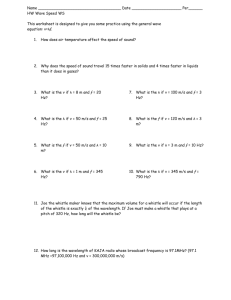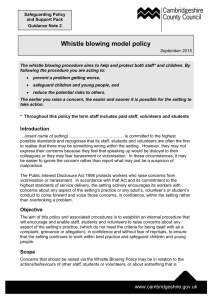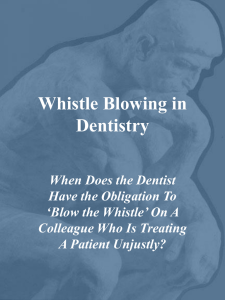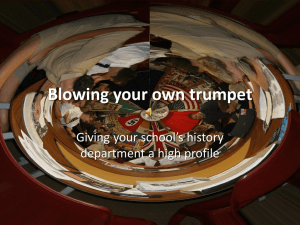Whistle Blowing 2015
advertisement
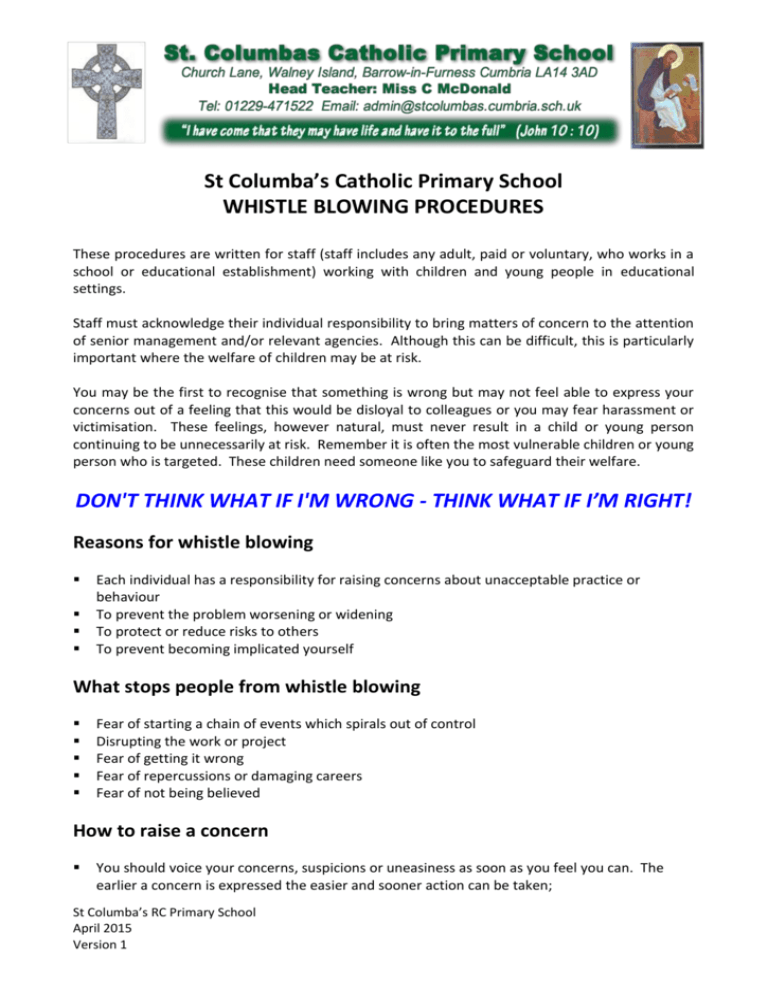
St Columba’s Catholic Primary School WHISTLE BLOWING PROCEDURES These procedures are written for staff (staff includes any adult, paid or voluntary, who works in a school or educational establishment) working with children and young people in educational settings. Staff must acknowledge their individual responsibility to bring matters of concern to the attention of senior management and/or relevant agencies. Although this can be difficult, this is particularly important where the welfare of children may be at risk. You may be the first to recognise that something is wrong but may not feel able to express your concerns out of a feeling that this would be disloyal to colleagues or you may fear harassment or victimisation. These feelings, however natural, must never result in a child or young person continuing to be unnecessarily at risk. Remember it is often the most vulnerable children or young person who is targeted. These children need someone like you to safeguard their welfare. DON'T THINK WHAT IF I'M WRONG - THINK WHAT IF I’M RIGHT! Reasons for whistle blowing Each individual has a responsibility for raising concerns about unacceptable practice or behaviour To prevent the problem worsening or widening To protect or reduce risks to others To prevent becoming implicated yourself What stops people from whistle blowing Fear of starting a chain of events which spirals out of control Disrupting the work or project Fear of getting it wrong Fear of repercussions or damaging careers Fear of not being believed How to raise a concern You should voice your concerns, suspicions or uneasiness as soon as you feel you can. The earlier a concern is expressed the easier and sooner action can be taken; St Columba’s RC Primary School April 2015 Version 1 Try to pinpoint exactly what practice is concerning you and why; Approach your immediate manager, Designated Safeguarding Lead- Mrs Sharpe or Head teacher- Miss Mc Donald. If your concern is about your immediate manager/Head teacher, speak to the Chair of Governors or if you feel you need to take it to someone outside the school, contact the Cumbria Safeguarding Hub; Make sure you get a satisfactory response - don't let matters rest; Ideally, you should put your concerns in writing, outlining the background and history, giving names, dates and places wherever you can; A member of staff is not expected to prove the truth of an allegation but will need to demonstrate sufficient grounds for the What happens next You should be given information on the nature and progress of any enquiries. Your employer has a responsibility to protect you from harassment or victimisation. No action will be taken against you if the concern proves to be unfounded and was raised in good faith. Malicious allegations may be considered as a disciplinary offence. Self-reporting There may be occasions where a member of staff has a personal difficulty, perhaps a physical or mental health problem, which they know to be impinging on their professional competence. Staff have a responsibility to discuss such a situation with their line manager so professional and personal support can be offered to the member of staff concerned. Whilst such reporting will remain confidential in most instances, this cannot be guaranteed where personal difficulties raise concerns about the welfare or safety of children. Further advice and support It is recognised that whistle blowing can be difficult and stressful. Advice and support is available from your line manager, HR department and/or your professional or trade union. "Absolutely without fail - challenge poor practice or performance. If you ignore or collude with poor practice it makes it harder to sound the alarm when things go wrong" (reproduced with acknowledgement to “Sounding the Alarm” – Barnardos). For Community and Voluntary Controlled Schools, reference should also be made to the Cumbria Council Whistle Blowing Policy. St Columba’s RC Primary School April 2015 Version 1
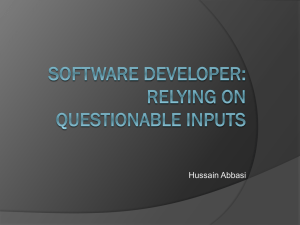
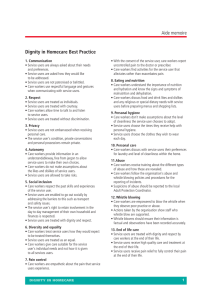
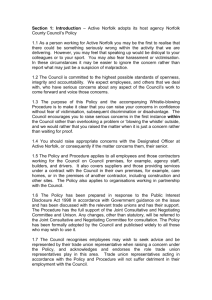
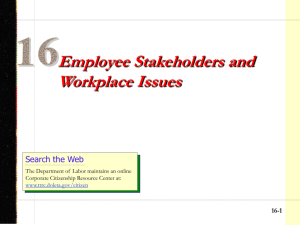
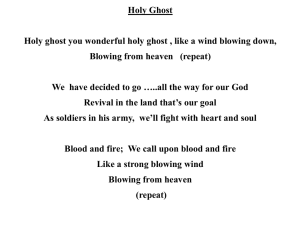
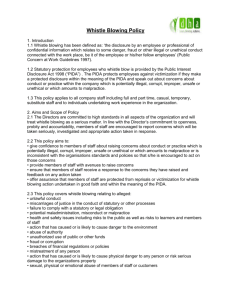
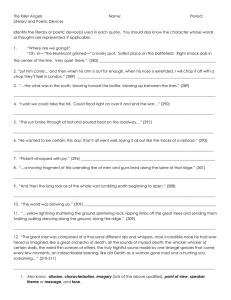
![Irish_Instruments[1]](http://s2.studylib.net/store/data/005225244_1-933d38d948219028b61a355ae6baf1c4-300x300.png)
